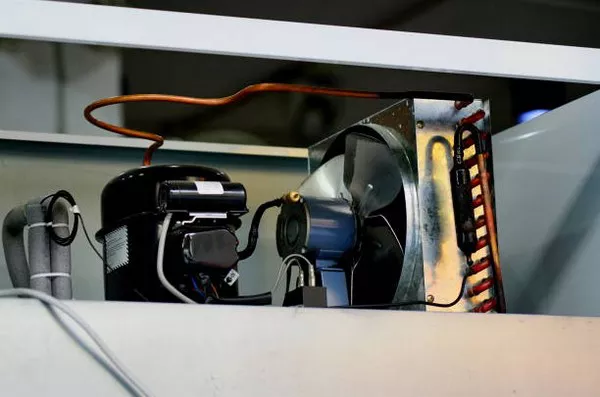When your central air conditioning system stops cooling efficiently, it could be a sign that the compressor needs replacement. The compressor is the heart of the AC unit, responsible for circulating refrigerant and maintaining the cooling cycle. Understanding the cost of replacing a central AC compressor is crucial for homeowners and businesses alike, as it can represent a significant investment. This article delves into the factors influencing the cost, average price ranges, and considerations for replacement to help you make an informed decision.
What is a Central AC Compressor?
The central AC compressor is a vital component of an air conditioning system. It compresses the refrigerant, turning it from a low-pressure gas to a high-pressure gas, which then moves through the coils to release heat outside and cool the air inside. Given its pivotal role, a malfunctioning compressor can cripple your cooling system, necessitating a repair or replacement.
Factors Influencing the Cost
Several factors influence the cost of a central AC compressor, including the type of compressor, brand, size, and labor costs. Here’s a breakdown of each factor:
Type of Compressor:
Reciprocating Compressors: These are among the most common and are typically less expensive. They use pistons to compress the refrigerant.
Scroll Compressors: These are more efficient and quieter than reciprocating compressors, but they come with a higher price tag.
Rotary Compressors: Often used in smaller units, these are generally less expensive but not as efficient as scroll compressors.
Variable Speed Compressors: These provide precise temperature control and energy efficiency, making them the most expensive option.
Brand:
Well-known brands like Carrier, Trane, Lennox, and Goodman often command higher prices due to their reputation for quality and reliability. However, lesser-known brands might offer competitive pricing but could compromise on longevity and efficiency.
Size (Capacity):
The size of the compressor, measured in tons, directly affects the cost. Residential compressors typically range from 1.5 to 5 tons. Larger units cost more due to the increased materials and complexity.
Labor Costs:
The cost of labor can vary widely based on location, the complexity of the installation, and the specific HVAC company’s rates. Labor costs typically include removing the old compressor, installing the new one, and testing the system.
Additional Components and Repairs:
Sometimes, replacing the compressor might also involve replacing or repairing other components such as refrigerant lines, capacitors, or thermostats, which can add to the overall cost.
Average Cost Ranges
Based on the factors mentioned, here are the average cost ranges for central AC compressors, including installation:
- Reciprocating Compressors: $800 – $2,200
- Scroll Compressors: $1,000 – $2,500
- Rotary Compressors: $600 – $1,200
- Variable Speed Compressors: $1,500 – $3,000
For a typical residential system, the cost including installation generally ranges from $1,200 to $3,000. High-efficiency units or larger commercial systems can push the total cost upwards of $4,000 or more.
Detailed Breakdown of Costs
Compressor Unit: The compressor unit alone can cost between $400 and $1,500, depending on the type and capacity.
Labor: Labor costs can range from $400 to $1,200. This includes the removal of the old unit, installation of the new compressor, and system testing.
Refrigerant: Depending on the type and amount of refrigerant required, this can add an additional $100 to $300 to the total cost.
Miscellaneous Parts and Materials: Additional parts such as filters, electrical connectors, and mounting hardware can add another $50 to $200.
Cost by Brand
Carrier: $1,500 – $2,800
Trane: $1,600 – $3,000
Lennox: $1,700 – $3,200
Goodman: $1,200 – $2,400
These prices include both the compressor unit and installation.
DIY vs. Professional Installation
While it might be tempting to save money by attempting a DIY compressor replacement, it’s not advisable unless you have extensive HVAC experience. Compressors involve high-pressure refrigerants and complex electrical components that require professional handling to ensure safety and efficiency. Improper installation can lead to system inefficiencies, further damage, or voided warranties.
Warranties and Rebates
Many compressors come with manufacturer warranties ranging from 5 to 10 years, which can provide some peace of mind regarding future repairs or replacements. Additionally, some energy-efficient compressors may qualify for rebates from utility companies or government programs, potentially offsetting the initial cost.
See Also How To Check If The Compressor Is Bad
Signs Your Compressor Needs Replacement
Lack of Cooling: If your system isn’t blowing cold air, it could be a sign of a failing compressor.
Strange Noises: Grinding, clunking, or screeching noises can indicate internal issues.
Tripped Breakers: A compressor drawing too much power may trip your circuit breaker.
High Energy Bills: An inefficient compressor can cause your energy bills to spike.
System Overheating: If the outdoor unit is overheating, it could be a sign of compressor failure.
Conclusion
Replacing a central AC compressor is a significant investment that can range from $1,200 to $3,000 or more, depending on various factors such as type, brand, size, and labor costs. While it’s an expense that no homeowner wants to face, understanding the components of the cost can help you budget appropriately and make a well-informed decision. Always consult with a professional HVAC technician to diagnose your system and recommend the best course of action. With proper maintenance and timely repairs, your central AC system can continue to provide efficient cooling for years to come.

